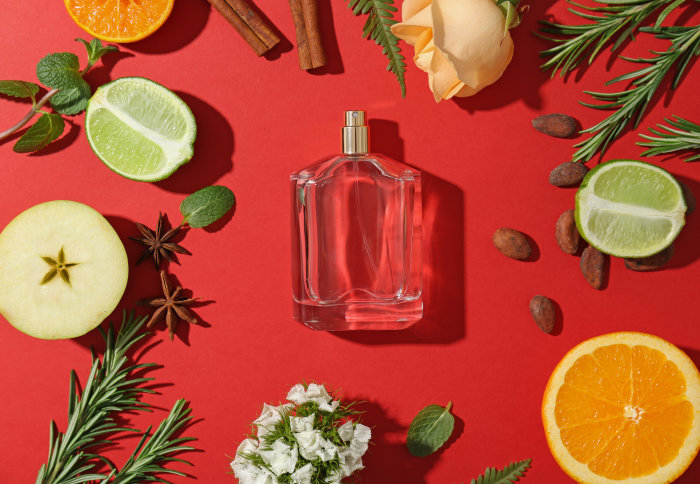Common scents don’t always make the best perfumes, suggests mathematical study

Perfumes that use the most popular scents do not always obtain the highest number of ratings, according to an analysis of online perfume reviews.
A study of 10,000 perfumes and their online ratings reveals which odours are likely to bring success, with some surprising combinations providing a boost to ratings.
It could be a beneficial tool for systematic ingredient selection and act as an artificial ‘Nose’ – a traditional craft-master of perfumery. Vaiva Vasiliauskaite
Perfumes are described in terms of ‘notes’, which can be single odour ingredients, such as vanilla, musk or jasmine, as well as more generic smells like ‘floral notes’. Perfume smell is then described in terms of a combination of these notes. Combinations of several notes that are commonly used in perfumes are called 'accords’.
Now, Vaiva Vasiliauskaite and Dr Tim Evans from the Department of Physics at Imperial College London have used complex network analysis to determine the most popular notes and accords. They studied 1,000 notes in over 10,000 perfumes and their success in online shops. Their study is published today in the open-access journal PLOS ONE.
Successful scent combinations
They found that some notes and accords are ‘over-represented’ in the dataset, meaning they appear more often than by chance, but that these are not necessarily the ones that are present in perfumes with the highest number of ratings.
While some common accords, like lavender and geranium, are often present in ‘successful’ perfumes, some less-common notes and accords have an even stronger link with perfume popularity, for example jasmine plus mint, or musk plus vetiver and vanilla.
The researchers say this could be a new avenue for perfumers to discover scent combinations that are likely to be successful but are not yet widespread.
Vaiva said: “Our work provides insights into factors that play a role in the success of perfumes. It also sets up a framework for a statistical analysis of fragrances based on simple properties and customer reviews. It could be a beneficial tool for systematic ingredient selection and act as an artificial ‘Nose’ – a traditional craft-master of perfumery.”
Ratings enhancers
The team acknowledge that brand influences perfume popularity but found no correlation between perfume price or time since release and success. The smell itself did have a large relation to perfume success.
Their mathematical analysis also allowed them to determine which notes had particularly high ‘enhancement’ effects – those that played a significant role in improving the rating of the accord they were added to. The best enhancers tended to be generic notes, such as `floral notes’, or were well represented in the database, such as musk or vanilla.
Dr Evans and Vaiva are part of the Centre for Complexity Science at Imperial.
-
‘Social success of perfumes’ by Vasiliauskaite V and Evans TS is published in PLOS ONE.
Article supporters
Article text (excluding photos or graphics) © Imperial College London.
Photos and graphics subject to third party copyright used with permission or © Imperial College London.
Reporter
Hayley Dunning
Communications Division